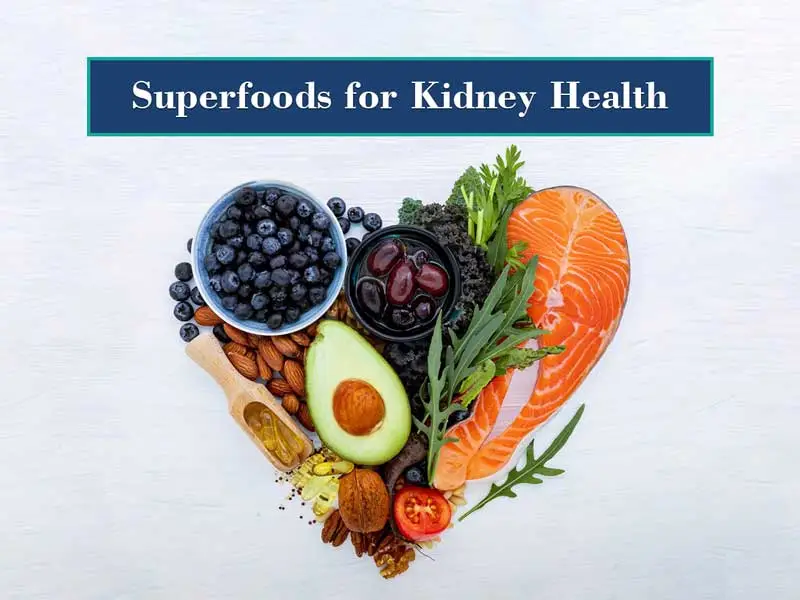Our kidneys play a critical role in maintaining overall health, filtering waste, balancing fluids, and regulating essential minerals in the body. Kidney health is influenced by many factors, including genetics, age, and existing health conditions. However, diet and lifestyle choices are major contributors to kidney health, often determining the likelihood of developing kidney-related issues over time. Here’s what you need to know about how diet and lifestyle impact kidney health and what you can do to keep your kidneys functioning at their best.
Why Kidney Health Matters
Kidneys are vital organs responsible for filtering waste and excess fluids from the blood. This filtration process produces urine and maintains a balanced environment for other organs to function effectively. When kidney health declines, so does this filtration process, which can lead to chronic kidney disease (CKD) and kidney failure if untreated. With kidney disease on the rise globally, it’s essential to adopt a kidney-friendly diet and lifestyle to prevent complications and maintain a good quality of life.

Superfoods for Kidney Health
When it comes to maintaining kidney health, the foods you consume play a powerful role. Certain foods are particularly beneficial, helping to protect kidney function while reducing the risk of kidney stones, high blood pressure, and other kidney issues.
- Berries – Blueberries, strawberries, and raspberries are packed with antioxidants that protect against cellular damage. They’re also low in potassium, making them a great choice for those with kidney concerns.
- Leafy Greens – Spinach, kale, and other leafy greens are nutrient-dense and contain essential vitamins and minerals. However, some greens are high in potassium, so it’s best to consult a healthcare provider for recommended servings.
- Fish – Fatty fish like salmon and mackerel are rich in omega-3 fatty acids, which help reduce inflammation and can lower blood pressure, a key factor in kidney health.
- Olive Oil – Olive oil is a healthy fat source with anti-inflammatory properties. It’s low in phosphorus, making it a suitable choice for those managing kidney issues.
- Garlic – Adding flavor without excessive sodium, garlic is beneficial for kidney health and helps reduce inflammation.
The Role of Hydration in Kidney Health
Hydration is essential for kidney health. Water helps the kidneys remove waste through urine and keeps blood vessels open, allowing blood to flow freely to the kidneys. Dehydration can cause waste to accumulate, potentially leading to kidney stones and urinary tract infections.
Aiming for at least 8 glasses of water per day is a good general rule, though individual needs vary. People with kidney issues, such as kidney stones or CKD, should consult their doctor about optimal hydration levels. Overhydration is also a concern in advanced kidney disease, where fluid intake may need to be carefully managed.

Lifestyle Factors Impacting Kidney Health
Certain lifestyle habits can have a profound effect on kidney health. Here are key habits to watch for:
- Smoking – Smoking can interfere with kidney function and worsen existing kidney disease. It increases blood pressure and reduces blood flow to the kidneys, impairing their ability to filter waste effectively.
- Exercise – Regular physical activity lowers blood pressure, reduces weight, and supports heart health – all factors that help protect kidney function. Aim for at least 150 minutes of moderate exercise per week, like walking, swimming, or cycling.
- Weight Management – Being overweight can strain the kidneys, leading to a higher risk of kidney disease. Maintaining a healthy weight through diet and exercise is essential.
- Avoid Excessive Painkillers – Nonsteroidal anti-inflammatory drugs (NSAIDs) like ibuprofen can damage kidneys when used frequently. Limit their use, especially if you have existing kidney issues.
Dietary Supplements and Kidney Health
Supplements are popular today, but not all are beneficial for kidney health. Some, like vitamin D, may benefit those with kidney disease, while others, like potassium or phosphorus supplements, could be harmful, especially for those with CKD. Here are some tips:
- Vitamin D – Helps maintain bone health, especially in CKD patients who often have low levels.
- Omega-3 Fatty Acids – Reduces inflammation and supports heart health, beneficial for kidney patients.
- Calcium and Potassium – Essential, but patients with CKD need to monitor these carefully as imbalances can affect kidney health.
Tip: Always consult a nephrologist before starting new supplements, as kidney patients have unique dietary needs.
Managing High Blood Pressure and Diabetes
High blood pressure and diabetes are the leading causes of kidney disease, affecting millions worldwide. By managing these conditions, individuals can reduce their risk of kidney damage.
- Blood Pressure Management – High blood pressure damages kidney blood vessels, impairing function. Limiting salt, exercising, and taking prescribed medications can lower blood pressure effectively.
- Blood Sugar Control – Diabetics are at high risk of kidney disease. A kidney-friendly diet, combined with regular monitoring and medications, is essential to prevent damage.
- Routine Check-ups – For those at risk, regular kidney function tests are critical for early detection and management.
Key Takeaways: How to Maintain Kidney Health Through Diet and Lifestyle
Maintaining kidney health is a combination of a balanced diet, a healthy lifestyle, and routine medical care. Here are a few actionable tips:
- Eat a Kidney-Friendly Diet – Incorporate low-potassium, low-sodium foods that support kidney function, like berries, fish, and leafy greens.
- Stay Hydrated – Aim for 8 glasses of water daily to help kidneys filter waste effectively.
- Exercise Regularly – Engage in physical activities that promote heart and kidney health.
- Limit Alcohol and Avoid Smoking – These habits strain the kidneys and worsen existing issues.
- Monitor Medications and Supplements – Always check with a healthcare provider before taking new medications or supplements.
By following these tips and working closely with healthcare providers, you can significantly lower the risk of kidney disease and support overall health.
Conclusion
Diet and lifestyle choices are essential for preserving kidney health and preventing kidney disease. By making thoughtful choices about what we eat, how we live, and monitoring conditions like diabetes and high blood pressure, we can take proactive steps to support our kidneys. As always, consult a healthcare provider or nephrologist, especially if you’re at risk for kidney disease. Start caring for your kidneys today – they play a vital role in your overall health!



